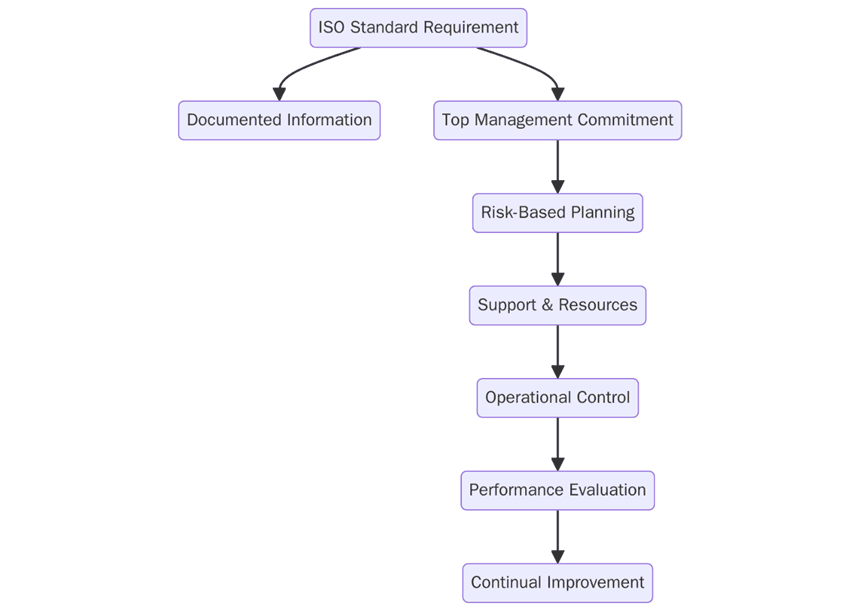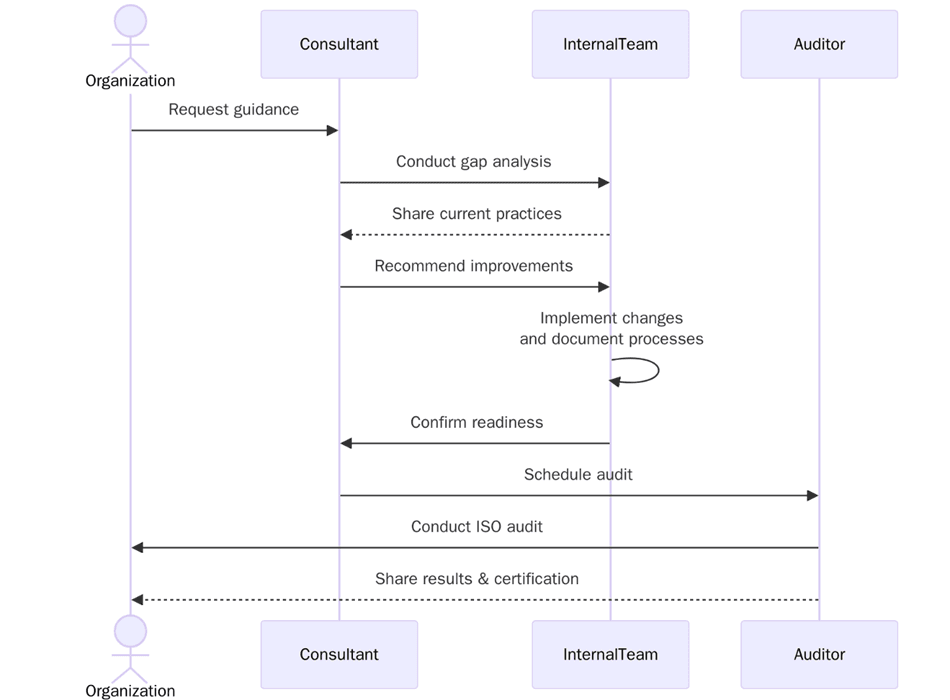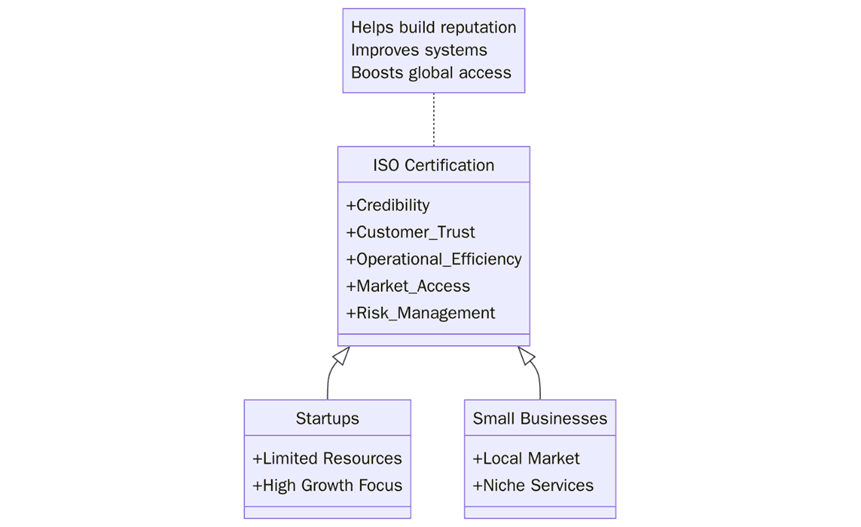ISO for Startups and Small Businesses: Is It Worth It?

For startups and small businesses, developing trust and credibility may be one of the biggest challenges, as they do not have established reputations, proven networks, or the resources of large organizations. This is precisely where ISO certifications can play an important role. ISO certifications are internationally recognized standards that provide a visible means of demonstrating quality and reliability, and organizations with certified quality management systems are said to have a structured way of thinking about things. ISO certifications are important for gaining customer confidence, attracting investors and sustainably scaling the business to meet demand.
Some entrepreneurs think ISO certifications pertain only to large enterprises but the reality is that small businesses can benefit even more. Their certification can provide a competitive advantage and they can access regulated markets and show to global supply chains that they are credible partners.
To learn how ISO certifications can benefit your startup or small business, reach out to us at [email protected].
Introduction
The ISO (International Organization for Standardization) develops global standards that describe best practice in a wide range of industries, from quality management and information security to environmental management and occupational health and safety. These standards can be implemented by organizations of any size - they are adaptable, scalable and therefore particularly applicable for startups and small businesses.
ISO standards introduce structure during a time when most startups are still maturing their processes. The use of ISO frameworks will ensure that the company has documented systems rather than relying on informal practices or key people, allowing for consistency, accountability and repeatability.
Why ISO Certification Matters for Startups and Small Businesses?
ISO certification is important because it offers evidence to the small business, and its stakeholders that it is not only aligned with international standards but also has a commitment to governance and structured sustainability. In sectors such as IT services, healthcare, food processing, manufacturing or logistics, ISO certification is often required in tenders and contracts. This means that a startup without certification misses out on opportunities to sustain their revenue streams.
Certification elevates credibility with investors, and new partners. Venture capitalists and private equity firms are often actively looking for proof of increased maturity, accountability and governance; the more evidence they see of risk control the better. An ISO-certified company will have gone to great lengths to reduce and prevent mistakes, improve customer satisfaction rates and consciously manage operational risks.
What are the ISO Certifications requirements for Startups and Small Businesses?
While each ISO standard has its own specific requirements, there are common elements that apply across most certifications. Startups and small businesses need to understand these to prepare effectively:

- Clarify which part of the business is going to get ISO 9001 certified (entire operation or certain processes).
- Establish policies reflecting corporate goals and commitment (e.g., quality, safety or environmental stewardship).
- Understand the risks associated with the chosen standard, and develop mitigation strategies.
- Keep records of practices, checks, and improvements.
- Ensure employees understand their responsibilities to meet ISO requirements.
- Create productive measures such as process controls, safety measures or IT security checks.
- Evaluate the system regularly in order to identify strengths and weaknesses.
How to prepare for ISO Certification?
Preparation for ISO certification may seem daunting for small businesses, but breaking it down into manageable steps simplifies the process.

1. Compare current practices with ISO requirements to identify areas needing work. For startups, this often highlights weaknesses in documentation and structured processes.
2. Create formal policies that align with the standard you are pursuing, such as a Quality Policy for ISO 9001 or an Information Security Policy for ISO/IEC 27001.
3. Train staff on the requirements of the standard and involve them in day-to-day compliance. Startups often succeed when employees take ownership of these processes.
4. Maintain organized records such as training logs, incident reports and internal audit findings.
5. Identify hazards or vulnerabilities, develop controls and prepare contingency measures.
6. Conduct test audits to uncover gaps before the formal certification process begins.
7. Leadership must drive the process by reviewing objectives, setting targets and committing resources.
Certification Audit
The ISO certification audit follows a structured process, and even for startups or small businesses, it is overreaching yet adaptable:
Stage 1 Audit - Document review of processes, policies, and records to determine readiness.
Stage 2 Audit - An audit to confirm implementation as seen in the day-to-day by auditors.
Non-Conformities (NCRs) - These are issues seen in the audit which must be fixed prior to receiving to certification.
Management Review - Confirmation of top management involvement and accountability for the performance of the system.
Certification Decision - Certification will be awarded once the NCRs have been resolved.
Surveillance Audits - Conducted yearly audits to confirm continued conformity.
Recertification Audits - These audits are conducted to recertify every 3 years.
What are the benefits of ISO Certification for Startups and Small Businesses?
ISO certification provides long-term advantages that go beyond compliance. For startups and small businesses, the benefits are especially valuable:

- Certification builds confidence with customers, investors, and partners.
- Many industries require ISO-certified suppliers, giving certified startups an edge in winning contracts.
- Structured systems reduce errors, security breaches and compliance failures.
- Smooth resource use and reduced wastage cut costs over time.
- Certification encourages employees to take ownership of processes, improving morale.
- ISO-certified businesses are perceived as professional and reliable.
- A certified system provides the structure necessary for scaling operations sustainably.
Contact Us
Pacific Certifications provides accredited ISO certification services for startups and small businesses. We audit against international standards to help organizations build credibility, reduce risks, and achieve recognition in global markets.
If your startup or small business is considering ISO certification, contact us at [email protected] or visit www.pacificcert.com to get started.
Ready to get ISO certified?
Contact Pacific Certifications to begin your certification journey today!
Suggested Certifications –
Read more: Pacific Blogs

